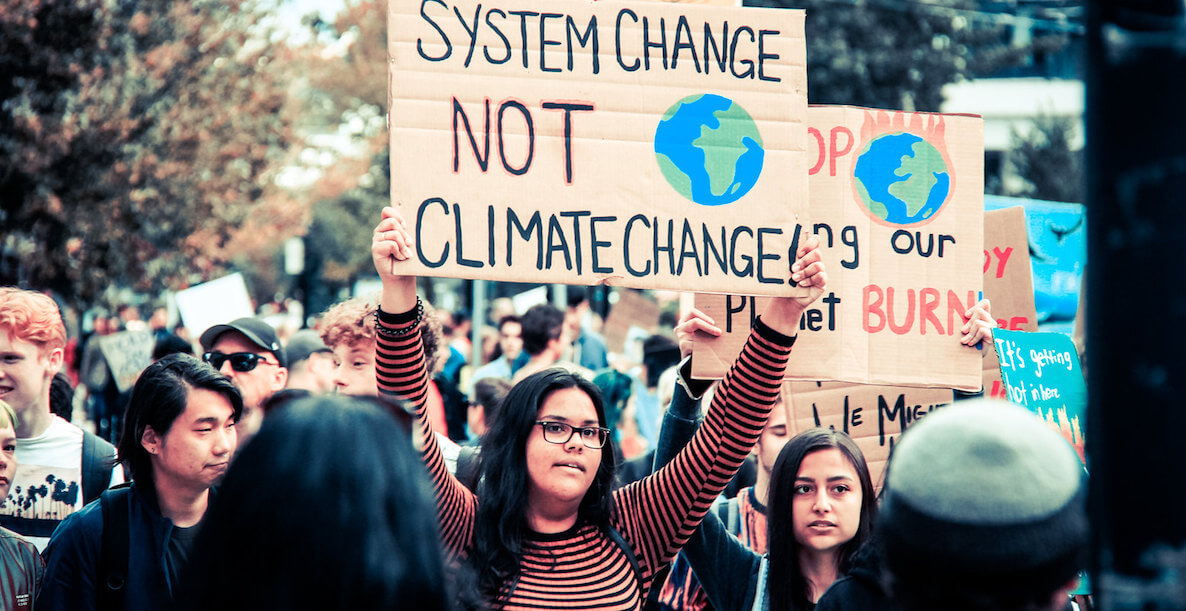We’re living at an intensely important moment. A time when our actions are determining the habitability — or inhabitability — of our home. (No pressure.)
Of course, it’s already become much less inhabitable — with raging storms, fires, droughts and floods that have affected millions of humans and wiped out thousands of species. And if we do nothing? It will get much, much worse.
Unfortunately the biggest contributors to climate change — burning fossil fuels to produce electricity (25 percent); agriculture and land use (24 percent); factories and industries (20 percent) — are out of our control. It’s up to our elected officials and business leaders (with pressure from us) to create and enforce policy and change practices that will lead to the scale of lasting change this crisis requires—our individual actions are only a small part of the answer.
But they do help. So, what can individual Philadelphians do? Start a movement.
Composting, eating less meat, bringing reusable bags everywhere you go, and swapping in LED light bulbs are not enough — on their own. The trick is to make your actions contagious, inspire the folks in your circle to do those things, too — and to use those simple actions as the starting point for advocating for big-picture, systemic changes.
Here, more than 50 ways to start:
Be informed
Yes, it’s hard to read about climate change — you can’t do it all the time, but you can do it. And you should. (When has denial led to change?)
News
For high quality environmental journalism, check out Floodlight, Grist, and This Land is Your Land (from The Guardian US). Sign up for Heated, a newsletter by Emily Atkin. She delivers climate coverage that, as she says, sets out to “expose and explain the forces behind past and present inaction on the most existential threat of our time.”
Books
There are tons of books about climate change, but here’s one you should put at the very top of your list: All We Can Save: Truth, Courage and Solutions for the Climate Crisis, edited by Dr. Ayana Elizabeth Johnson and Dr. Katharine Wilkinson. It’s a collection of essays by women at the forefront of the climate movement—women who are taking bold, persistent, intelligent action to educate, inspire and protect all we can still save. (You can donate to support the work of these women, and if you want to level up, sign up to host a “circle,” aka organize a group to read and discuss the book together with resources provided by the editors.)
Podcasts
A Matter of Degrees, hosted by Dr. Leah Stokes and Dr. Katharine Wilkinson, urges you to “give up your climate guilt. Sharpen your curiosity.” How to Save a Planet, hosted by Dr. Ayana Elizabeth Johnson and journalist Alex Blumberg, break down complicated topics in episodes like Is Your Carbon Footprint BS?; Black Lives Matter and the Climate; and Soil: The Dirty Climate Solution. They offer tons of insights and tangible action steps. (Delve into their archive of calls to action from every episode.)
Follow indigenous leaders
And all the recent talk of the climate crisis and how we need to better protect our land and water? It’s the work indigenous communities have been doing for thousands of years. Get involved with Indigenous Climate Action, support the Indigenous Environmental Network, read books like Medicine Wheel: Environmental Decision-Making Process of Indigenous Peoples and support local indigenous peoples.
Prioritize environmental justice
POWER Interfaith’s climate justice team centers racial and economic justice in their environmental work. Get involved or donate.
Philly Thrive has been organizing for environmental justice around the Philadelphia Energy Solutions site since 2015. Check out their action circles (one is specifically focused on clean-up at PES) and if you want to get involved, attend an upcoming orientation. You can also donate or become a monthly sustainer.
350 Philadelphia is fighting for a “rapid transition to a just and sustainable economy, through education, protest, advocacy, organizing, and coalition building.” Check out their Do Right Now list, host a Climate Conversation and donate to support their work.
Join the effort to protect all Philadelphian’s right to clean air with the Clean Air Council, our city’s oldest environmental non-profit. To get involved in stewarding local waterways, check out the Delaware Riverkeeper Network. Learn about more local environmental organizations here.
Vote for climate change fighters
First, do they agree it’s a human-caused problem? Do they agree it’s critical that we take smart action now? Are they well-positions to take said action? Find out where candidates stand on environmental issues before you vote for them.
Learn about our city’s efforts
Philly’s first chief resilience officer. Saleem Chapman is now overseeing Philadelphia’s efforts to mitigate and become more resilient to conditions caused by climate change. Read up on what our city is working on, hold our leaders accountable and get in touch with Chapman for ways you can get involved: (215) 686-3649; [email protected].
Advocate for green jobs
Start by calling your reps to ensure that as many green jobs as possible be included in President Biden’s infrastructure bill. Those jobs are well-paying, future-focused and better for the earth.
But also: Urge the City to put efforts into creating and training people for green jobs locally—or consider supporting this work yourself. That can mean more funding for programs like PowerCorps PHL, which trains formerly incarcerated people for jobs in the green economy, or West Philadelphia Skills Initiative, which funnels trainees into jobs with landscaping nonprofit Green City Works, or Serenity Soular, a North Philly nonprofit that is supplying jobs and solar power to communities that need both.
Assess your energy use
For $25 (or free if you qualify), PECO will send a team of inspectors to go over your home, inch by inch, to look for leaking air, poor insulation, and other things that can make rowhomes energy-inefficient. They’ll send a report on how to seal everything up, and even leave you with energy-saving light bulbs for your lamps. (We tried it—read how it went.)
Go the clean energy route
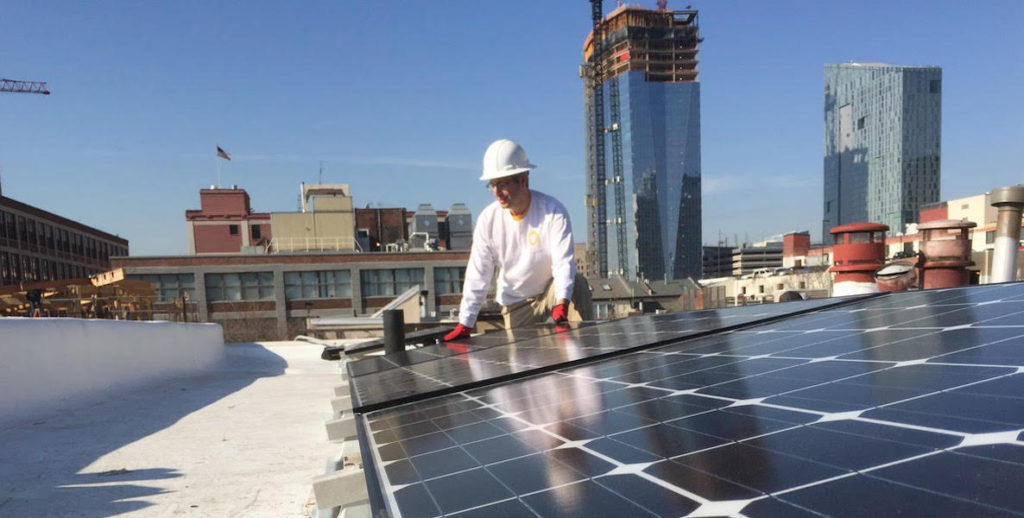
Sign up with Community Energy or the Energy Co-op to get 100 percent renewable energy—like solar and wind—generated right here in Pennsylvania.
You can also produce clean energy yourself with Solarize Philly — the first ever citywide solar program which, among other things, includes discounts and rebates on solar panel installation from one of a couple local installers. You’ll rely less on dirty energy and save money. Go to one of Solarize’s neighborhood events to learn more.
Grow food (and eat more plants)
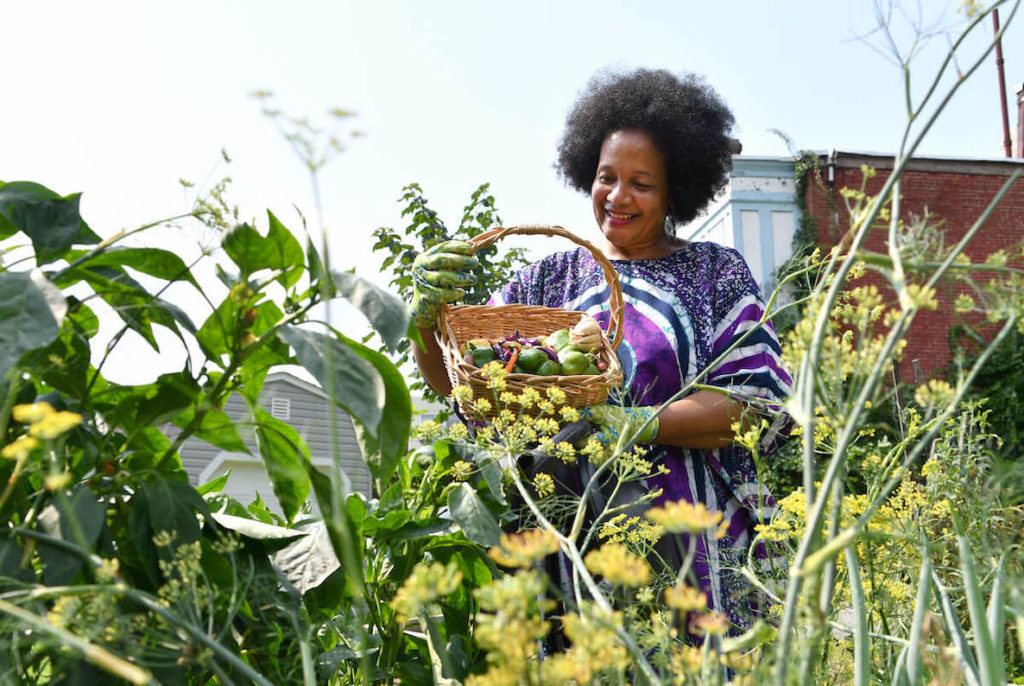
Agriculture and forestry generate 24 percent of greenhouse gas emissions. Whether you can convert your lawn to a garden and grow enough to share, deck out your rooftop with pots and containers, or plant a few herbs to keep on your windowsill, you can make a difference by tending a small patch of earth sustainably. It’s a step towards self-reliance that will also help you eat more plants — crucial because the production of livestock generates the highest levels of greenhouse gas emissions of all food production.
Taking care of plants also relieves stress; it’s a real live activity in a world of excess screen time; and you’ll get to enjoy exceptionally tasty produce. Learn how to get started with expert tips from Philly’s urban farming experts.
Collect rainwater
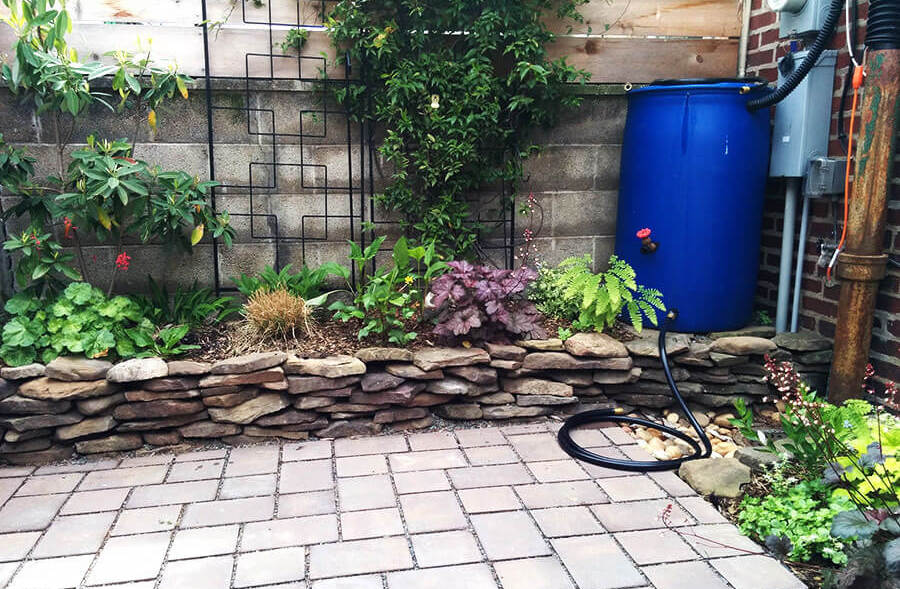
Sign up for Philadelphia Water Department (PWD) program RainCheck to learn how you can divert stormwater before it hits the sewers—and prettify your yard at the same time. PWD will install a free rain barrel at your home just for attending a one-hour workshop. For $100, the department will give you a wooden downspout planter filled with plants. It will also offset up to $2,000 of the cost of ripping up your concrete patio and replacing it with water-permeable material. Register online here to attend a workshop and get the ball rolling.
Compost
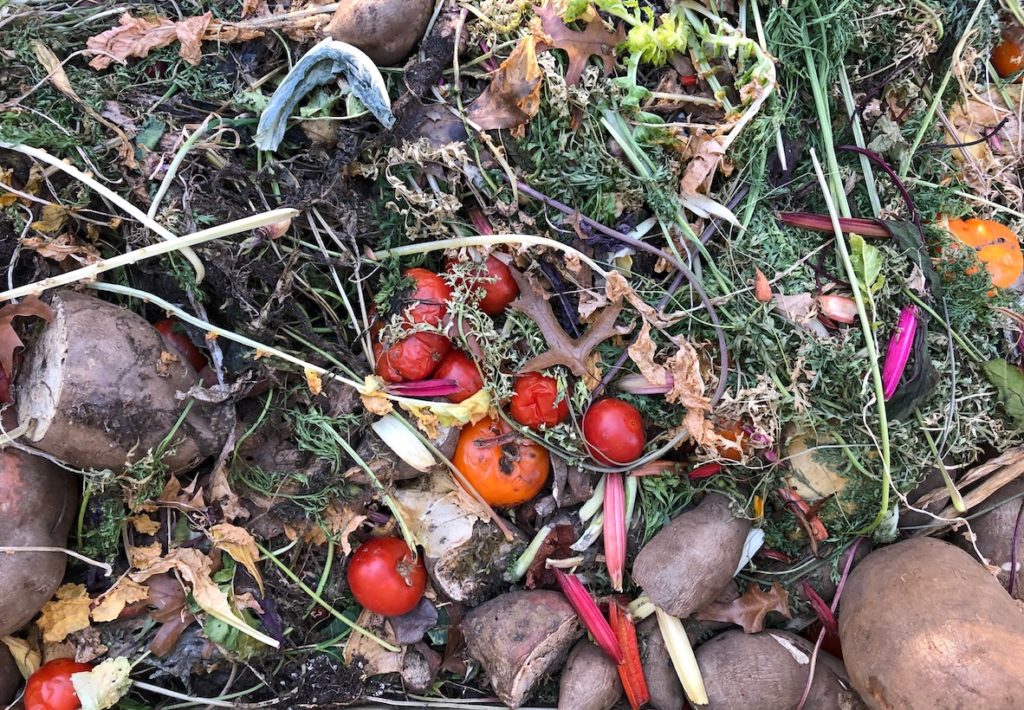
According to data collected by the Philadelphia Streets Department, organics account for 30 percent of our waste stream, which adds up to about 400,000 tons of food and yard scraps thrown into the landfill annually. You can get your food waste picked up from you front door with Bennett Compost, which offers weekly organics pickup for $18 per month, and Circle Compost does weekly or bi-weekly for $12 and $18, respectively. You can also see if there’s a community composting site in your neighborhood.
Or, DIY and start composting at home! Indoor worm bins are great if you don’t have access to an outside space (no, they’re not smelly). If you do have a small yard, check out this article to learn how to set up your own outdoor system.
Come fall, you can drop off leaves and other yard waste at the Fairmount Park Organic Recycling Center.
Use less plastic
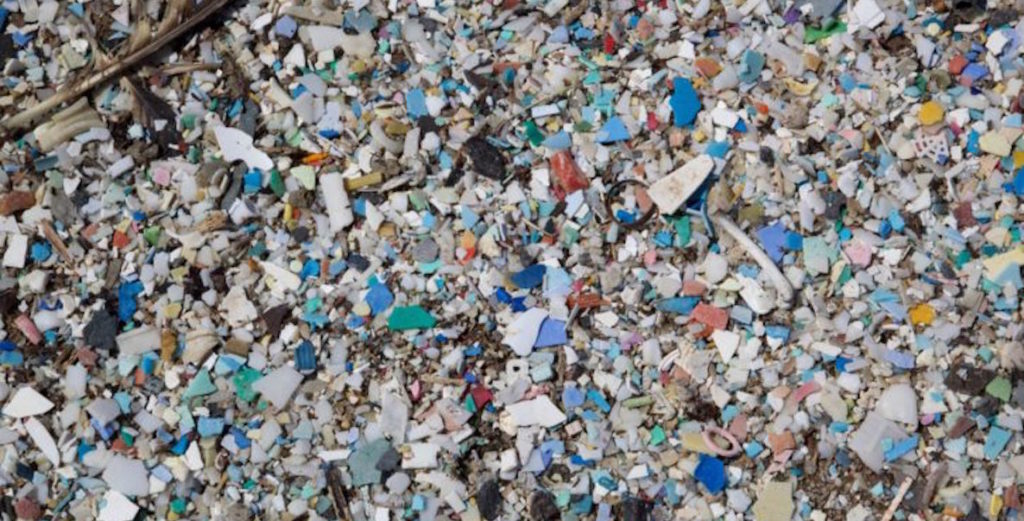
Sadly it’s still true: Here in Philadelphia, not everything we citizens put in those blue bins actually gets recycled. WHYY recently reported that Philly’s environmental planning director, Scott McGrath, confirmed rumors that, when trash and recycling are collected together by one truck (a strategy employed because of pandemic-caused personnel shortages) the recyclables end up in the incinerator. It’s not always the case — and recycling does help some — but you’re better off focusing on not using plastics and disposables in the first place.
Buy in bulk using your own containers (and push restaurants to offer reusable takeout containers, like this one did). Bring a refillable water bottle with you on the go. Order tons of different products—from shampoo to granola—in reusable packaging (that actually gets reused) with Loop. Reach out to your representatives and ask them to support the Break Free From Plastic Pollution Act.
Go car-free (as much as possible)
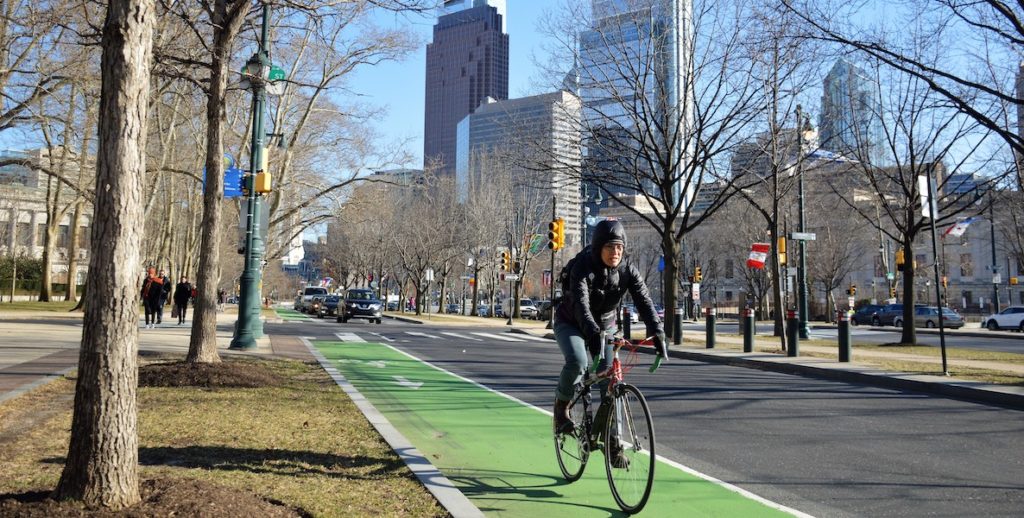 Photo courtesy Michael Stokes Flickr
Photo courtesy Michael Stokes Flickr
Take public transit, bike (here’s our rookie’s guide), walk, skip! Philly has tons of bike lanes, making two-wheel travel safer than ever these days. And the new SEPTA Key card, while not without its flaws, makes public transit a breeze. Anytime you can avoid using your car, do it. (Alternatively, get an electric vehicle—and charge it using renewable energy.) You’ll help reduce city emissions and won’t have to deal with the nightmares of traffic, nor finding and paying for parking. Paris has done it; so can we!
(PS: Best if you fly less, too.)
Invest Impactfully
You can invest in clean energy locally with the Reinvestment Fund. And you can check on how green your retirement savings are with As You Sow’s Invest Your Values, a tool to make sure your money is being put to good use. The good news: You can get good returns on your investments while also staying true to your environmental values.
Buy local food
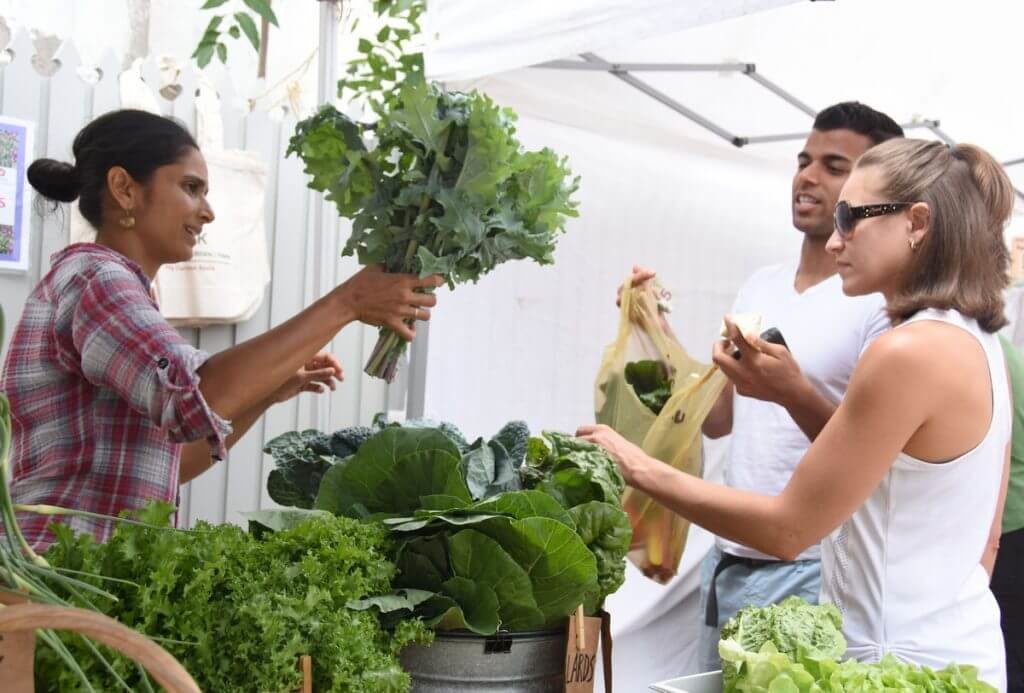
You can buy all kinds of delicious food at one of the many farmers’ markets in and around Philadelphia — from fruits and vegetables to locally sourced honey and baked goods. You can also check out one of Greensgrow’s farm stands happening at various times throughout the year, or check out a local CSA to have in-season veggies delivered to your doorstep.
Shop sustainable
Support local businesses in your neighborhood and around Philadelphia that have pledged to operate on an environmentally conscious business model through the Sustainable Business Network. You can find a list of participating businesses — from health spas like Eviama to restaurants like Primal Meat Supply and Yards Brewing Company — here.
Plant a tree
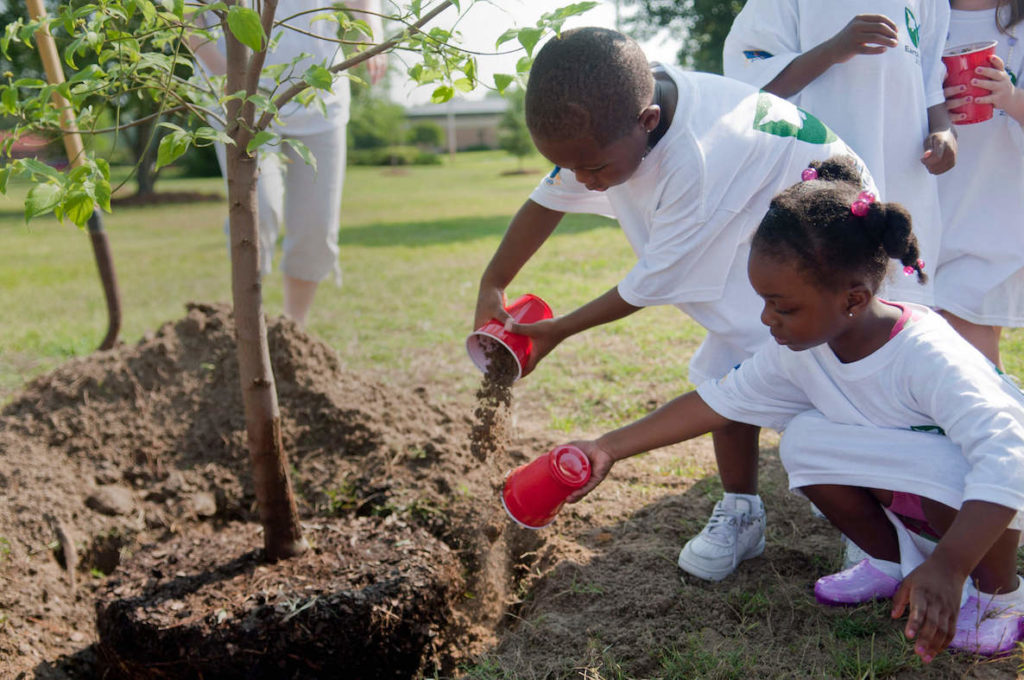
Philly’s tree canopy is shrinking—and there are even fewer in our city’s low-income communities. Learn how the Philly Tree Plan will address urban forest inequity.
TreePhilly, a Parks & Recreation-led effort to broaden our urban forest, gives away free yard trees twice a year — in the fall and spring. You can sign up for one here, choosing a variety and pickup location. All trees come in 5-gallon buckets, so they are small enough to fit in a compact car. They also come with easy, step-by-step planting instructions. Sign up for TreePhilly’s newsletter here to get more information about the next yard tree giveaway.
Of course you can also buy your own tree — the Arbor Day Foundation offers this guide for selecting the right tree for your yard, depending on its size, sun and watering requirements.
Go outside
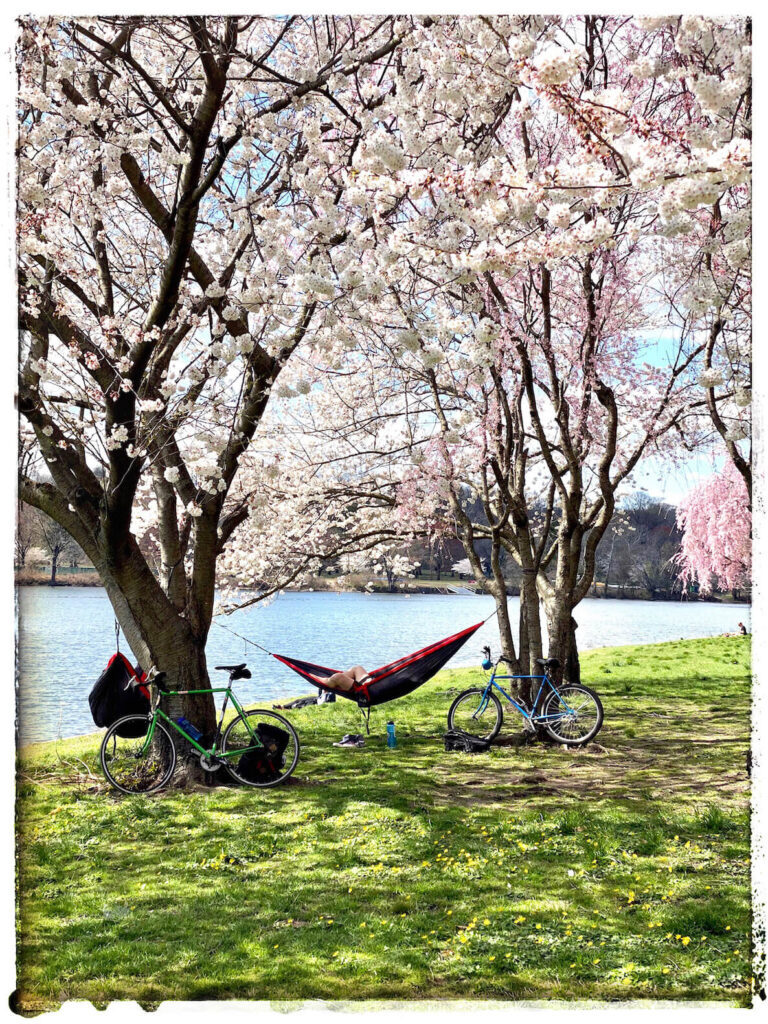
Spend time in the Wissahickon, Fairmount Park and on the Schuyklill River Trail. This city is full of beautiful landscapes we want to preserve. Seeing them, feeling them and being invigorated by them can inspire you to do more to protect our home.
Love Your Park
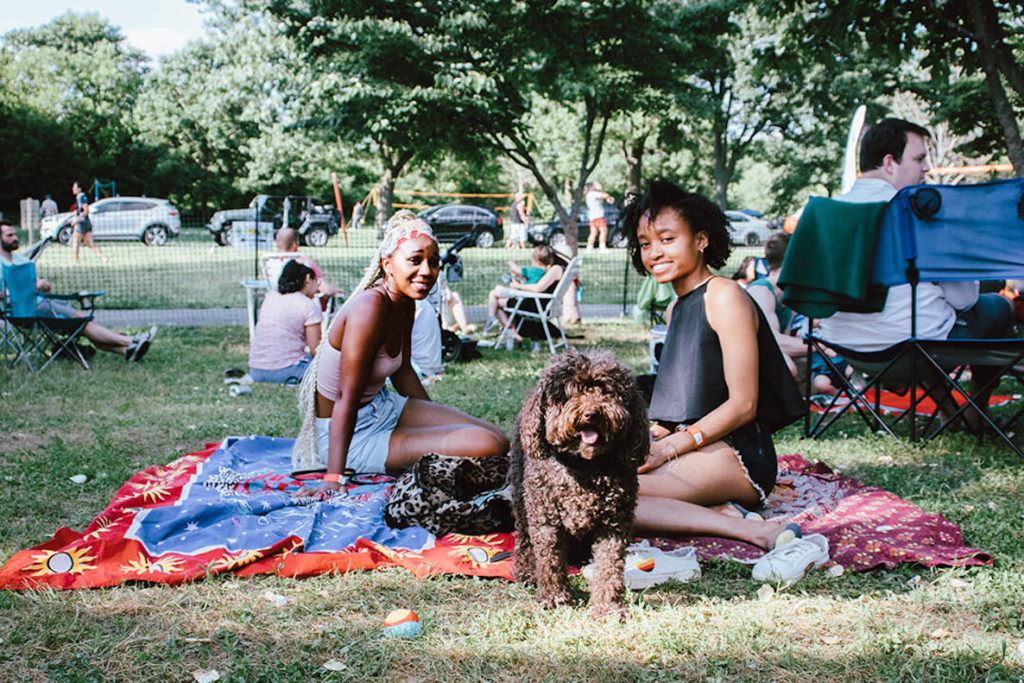
Love Your Park supports volunteers as they spruce up public green spaces across the city — register for their annual spring event, here. Start by visiting the Parks & Recreation website regularly to see what new events are going on, or join a Park Friends group to advocate for park improvements, help with beautification days, and organize educational programming. (More about why green spaces matter here.)
Live a greener afterlife
It may sound morbid, but our carbon footprint continues to stomp along long after we die — unless we take the initiative to peace-out in the greenest way possible. Lucky for us, Philly is home to West Laurel Hill Cemetery and Funeral Home, which has the greenest burial practices in the country. They accomplish that through a series of eco-conscious endeavors, such as letting goats mow the cemetery yard to putting people to rest in a bucolic natural burial section called Nature’s Sanctuary.
Influence your circles
Don’t be shy about talking about climate change (most Americans agree it’s a problem we need to more effectively address). No shaming, nor finger-wagging (methods that environmentalists have historically been pretty good at, that clearly don’t work). Instead, share information and inspire people with your own actions. What’s something that you already do that you can bring more people in on? Focus on your family, friends or neighbors to start the ripple effect. Get more info on doing this with 350Philadelphia’s previously mentioned Climate Conversations.
Envision a better future
One important thing to remember in all of this is that we already have a lot of solutions to fight the climate crisis. And it’s helpful to envision what’s possible by looking at solutions that are already in action. Check out solutions like BlocPower, carbon farming, biophilic design, ocean farming, to be inspired by what’s already underway.


